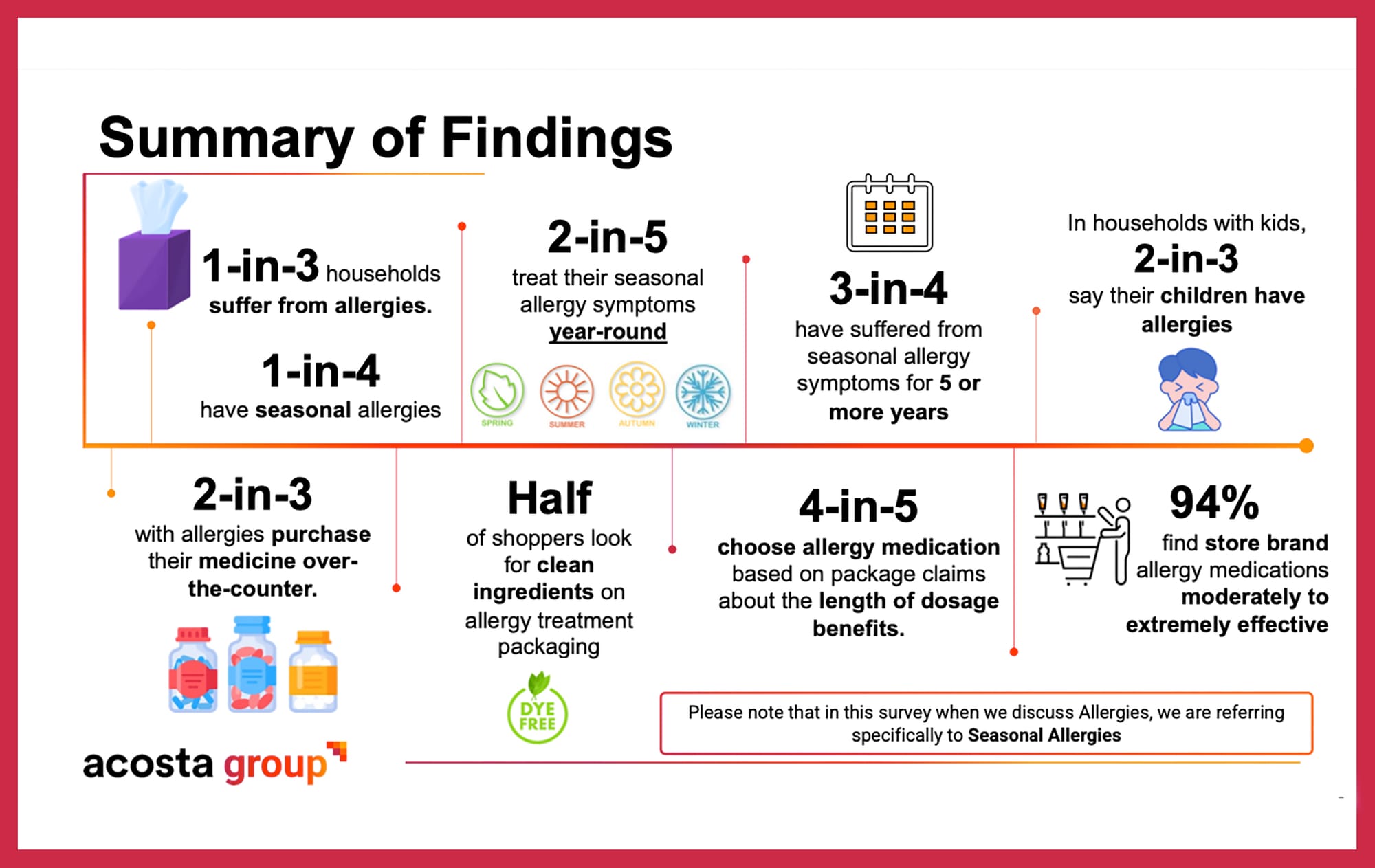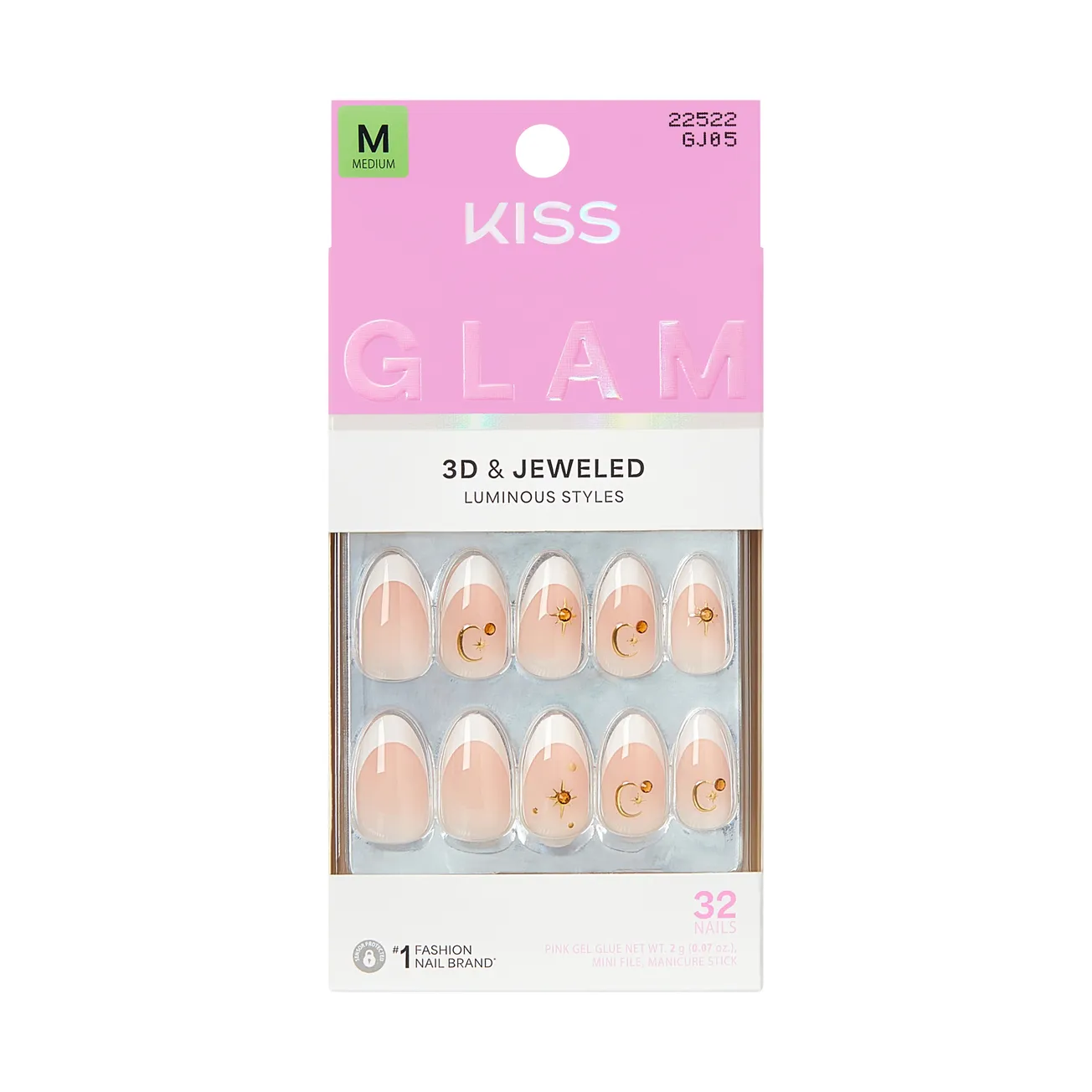JACKSONVILLE, Fla. — Seasonal allergies rank high among medical conditions, and there’s a growing market for over-the-counter products offering relief for their symptoms, Acosta Group says in a new report titled “Seasonal Allergies Shopper Insights.”
Based on a spring survey of 644 adult members of Acosta’s proprietary shopper community, the report focuses on how seasonal allergies affect individuals, how they handle their symptoms, and how they shop for treatments.
One in three households has at least one member who suffers from allergies, according to the report. Two-thirds of individuals with allergies treat their symptoms with O-T-C medicines. Inflation is driving more shoppers to store brands, Acosta says, and nearly all (94%) rate store brand allergy treatments as “moderately to extremely effective.” Four in five individuals with allergies choose allergy medicines based on label claims about the duration of dosage benefits.

Seasonal allergies are worsening as the climate grows warmer, bringing earlier and prolonged exposure to allergens such as tree pollen and ragweed pollen.
Other key takeaways and implications identified by Acosta Group include:
• Brands should adjust marketing timing to align with extended allergy seasons.
• Brands should cater to those with longer-lasting symptoms by implementing coupons and deals throughout allergy season, as well as bulk pack sizes.
• Brands should prominently feature nondrowsy symptom relief both on packaging and in advertising.
• Retailers should create a one-stop-shop allergy relief center near the pharmacy to highlight comprehensive symptom management, as seasonal allergy symptoms cover a broad spectrum of ailments, from eye and nose problems to exhaustion, headaches and hives.
• Retailers should consider cross-merchandising energy supplements and drinks alongside allergy medication.
• Name brands should offer coupons tied to multiple product line purchases that emphasize their value as a trusted brand.
• Name brands should maintain an appropriate price gap to store brand.
• Retailers can highlight their store brand allergy medicine, as well as the cost savings, to create an opportunity for the private brand to thrive.









